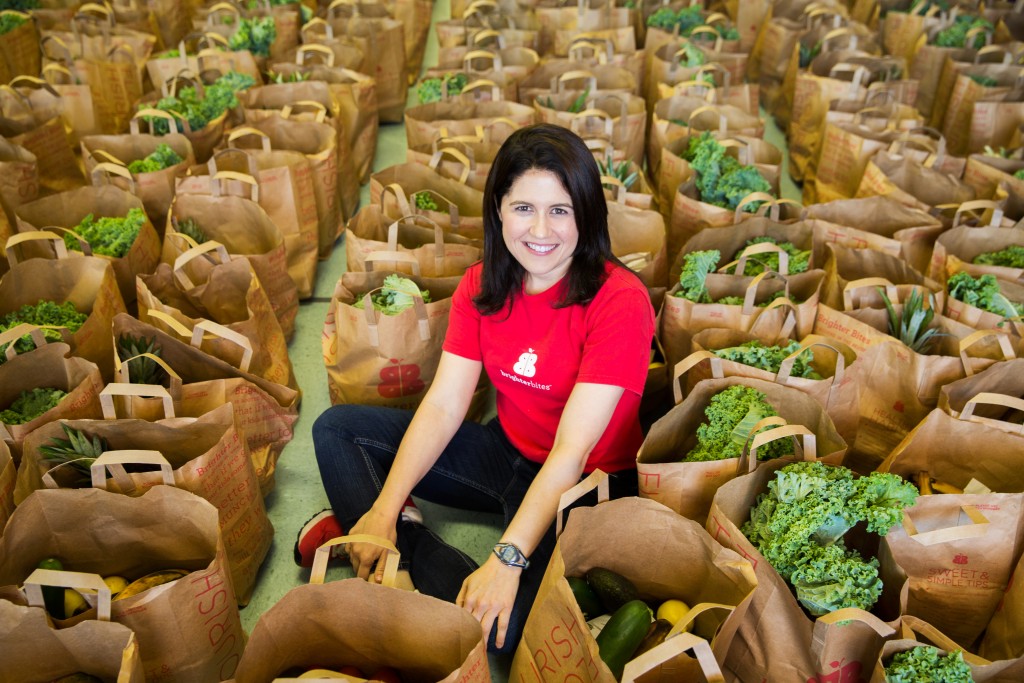It’s Healthy Texas Week: I Want a Healthier Texas

Between December 2015 and February 2016, three significant research reports were published that focus on the entangled topics of food insecurity, childhood obesity, diet-related chronic disease, and increasing healthcare expenses. These publications, issued by the World Health Organization (WHO) , the US Department of Health and Human Services (HHS), and the Bread for the World Institute make it hard to ignore that much of what we eat is adversely impacting our health and, in turn, driving up healthcare costs. They are sending a loud and clear message that changes in our diet are a solution to improving health in this country as obesity rates remain high and give rise to chronic illness. As National Nutrition Month passes and Healthy Texas Week begins, I am compelled to sound the alarm about these problems and shine light on one Houston-grown solution close to my heart.
We want food and we want it fast. Fast foods are plentiful at corner stores and restaurants across our city, which make it easy to feed our kids unhealthy foods when they are grumbling for a snack. There is good news, however. We are now creating a new fast food by getting fresh fruits and vegetables into the homes of underserved families.
On nearly any given day during the school year and summer break, families in Houston, Dallas, and Austin receive 30 pounds of fresh produce coupled with nutrition education through a non-profit organization I founded four years ago in Houston called Brighter Bites. I started Brighter Bites because my son’s taste for processed food and sweets dramatically declined after he was exposed to a large variety of fruits and vegetables I brought home each week from a local Houston co-op that supports organic farmers, many of them located in Texas. After eating foods like bell peppers, kale, and fresh berries for months at mealtimes, he started asking for them instead of traditional fast foods – he even turned down birthday cake at a friend’s party.
This radical shift convinced me to recruit Dr. Shreela Sharma, an Associate Professor of Epidemiology at UTHealth School of Public Health; Brian Green, CEO of the Houston Food Bank; and Mike Feinberg, co-founder of KIPP Public Charter Schools, to develop a similar co-op model for families living in the food deserts of Houston – areas of the city where access to healthy, affordable food is limited and fast food restaurants and convenience stores abound.
Together, Dr. Sharma and I developed a program to change food preferences in low-income children and families, increasing access to fruits and vegetables and nutrition education. For 16 weeks during the academic year and eight weeks in the summer, we deliver 30 pounds of 9-12 different types of free fresh produce each week to the families in our program so they can experiment with new foods without risk to their wallets; improve their eating habits; and, increase demand for more produce in their communities. We also provide every family with comprehensive nutrition handbooks, recipes, and tip sheets, and we support nutrition education lessons in the classroom.
Dr. Sharma has studied the impact of the program on our families, and the results are exciting: 98% of parents reported that their children ate more fruits and vegetables while participating in Brighter Bites; of those, 74% said they were able to maintain that increased level even after the Brighter Bites season ended. Brighter Bites is also saving our families approximately $38.00 per week on their grocery bill.
Over the past four years we have provided more than 6,000,000 pounds of produce to over 20,000 families at nearly 90 sites in three of the largest cities in Texas, including Head Start programs, elementary schools, middle schools, and after school programs.
Our end goal is changing the way people think about food: to understand that food equals health. This is bigger than just Brighter Bites. Will you join us in creating a new kind of fast food?